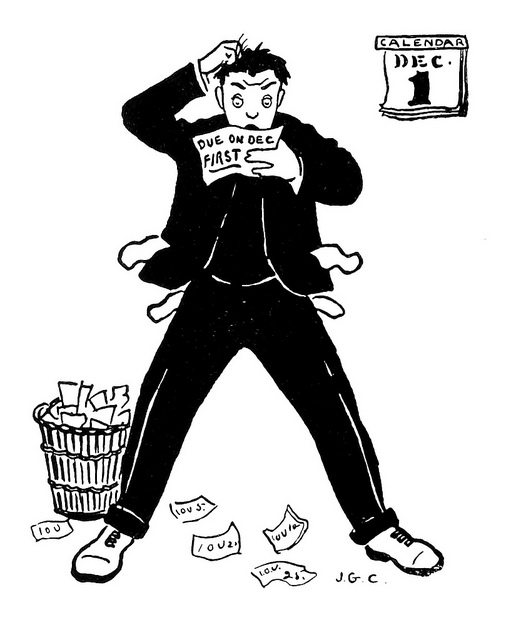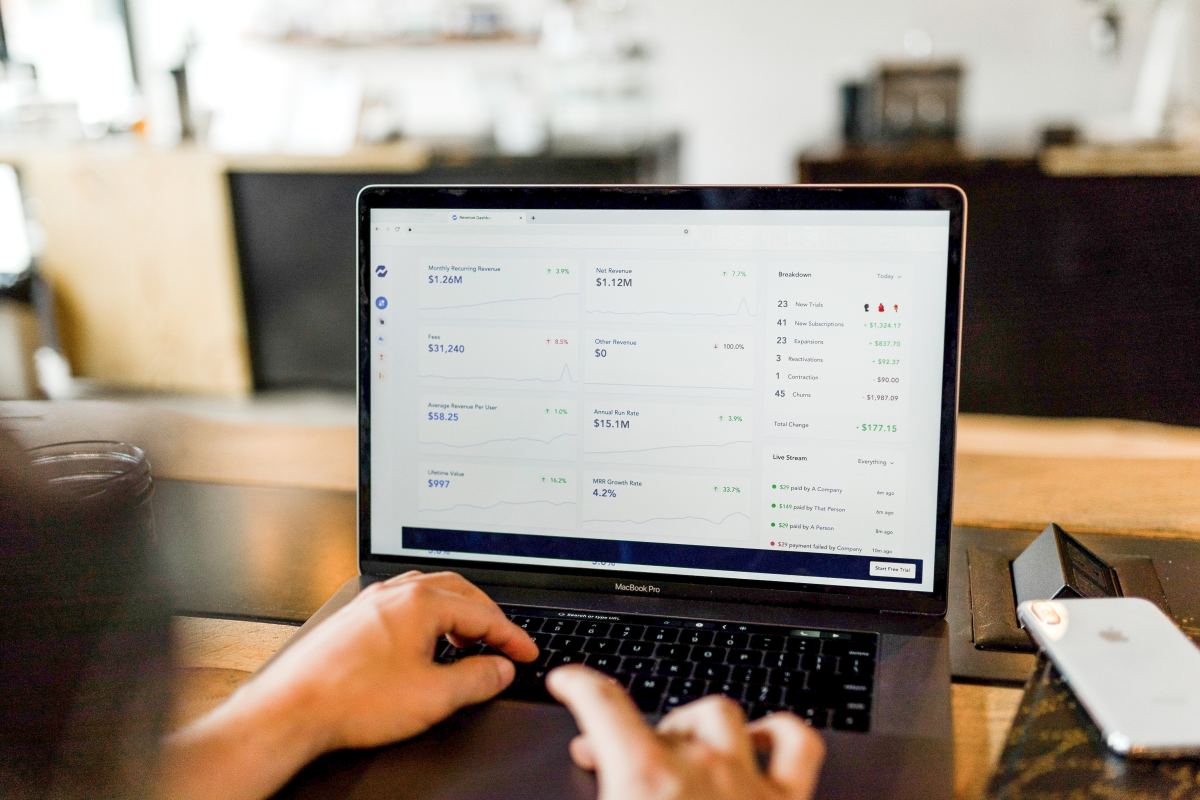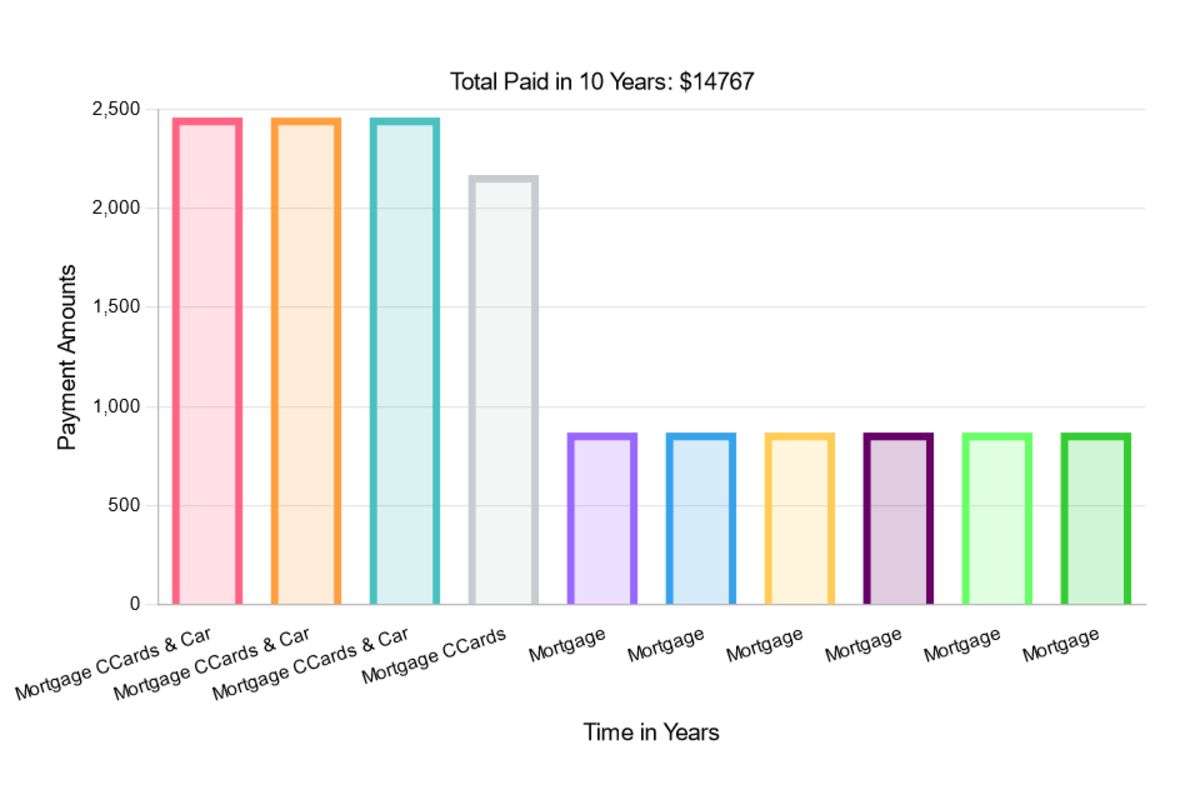Beating Credit Card Debt with Overdrafts: College Edition
Author is a survivor and conqueror of his debt, not a professional.
'I was in a tight spot and had to move towns.' 'My job fell through and it took a few weeks to get another.' 'There was a car accident and I didn't have cash for the deductible,' and a hundred other reasons why: you have a balance on the credit card that just refuses to go down.
It's not that you're flippant with your spending; you've been thrifty ever since your parents took you in for your first card.
You knew as I knew that credit was a convenience and an opportunity - not extra money. Yet as we grow from young adults who ask help from their parents, to the full-fledged kind that parents can ask for help, responsibilities and risks grew too; the hidden costs of adulthood caught us by surprise.
Now we're paying for it.

Going into Debt
- Average outstanding balance among college students: $750
- People incurring credit card debt due to unemployment: 86%
- People citing college education contributing to credit card debt: 71%
- Medical costs as debt among cardholders: 50% report an average of $1,500
The College Situation
- Average credit score of people aged 19-29 : 672
- Credit scores earmarked as 'very good:' 700-850
- Number of college students who know their credit score: 15%
- Number of college students who believe credit score is important: 70%
- Number of people who reach out for help with personal debt: 40%
- Number of people who would discuss debt with strangers: 15%
You're Not Alone
creditcards.com, a site that compares cards and (beware) offers them, delivers a useful array of statistics as of 2012, including youth debt. It cites 55 authoritative sources. I've placed some relevant data here on the right.
The numbers paint a picture: college students and young adults have a healthy respect of the risks of debt (and have relatively healthy scores) - but are flirting with their cards and are mostly uninformed.
The most likely scenario is also the most obvious one; credit cards are our first experience with debt, and we're wading into hot water before we learn any more about them.

Getting Out of the Jam - the 'Overdraft Line-of-Credit'
Let's get something clear.
If your spending habits and life situation is the source of your high personal debt, an Overdraft will not save you - it will enable deeper debt and hotter water. You need consultation and consolidation, not more debt. However, if you know your spending habits and earning power, and you historically eliminate your debts, the Overdraft can be a golden ticket out of an unexpected fiscal jam.
If you haven't heard of Overdrafts before, it's likely because a person needs a credit history before they can obtain one. Banks want to know you a while and see some assets under your belt before they personally allow you to spend more than you have. This is why we're typically saddled with the high interest credit card first.
An overdraft (or line-of-credit) is a fairly standard agreement with your bank. It allows your bank balance to go into negative territory (say, minus $1,000,) and behaves the same as money you actually have. While not always the case - the interest rates are usually much lower and charged annually rather than monthly. (Though the penalties for going over their limits can be grievous and harsh.)
If your minimum payments on the credit card are eating up whatever surplus cash you earn. The overdraft represents a quick shot in the arm that can eliminate much of the credit card debt and reign in the interest, putting you back in a position to save up money.
Comparison
Type
| Interest
| Fees
|
|---|---|---|
VISA and Mastercard
| 7% - 36%
| $15 - $300
|
Overdraft Line-of-Credit
| Prime + ~2%
| ~$20/infraction
|
In the same way that a long term mortgage offers better rates than a short term loan.
The overdraft has a better rate with stiffer penalties.

My Debt
Allow me to share my own debt story.
I've had a credit card since I turned 17. For years I paid off any balance before it was due. Sometimes I earned a lot of money and sometimes just enough, but I never relied on my card.
When I moved across the country to continue my education, the situation changed. I got stressed; stress turned into mental illness. I was unable to study and work at the same time, so I focused on studies and cut costs instead. I cut my food budget.
Eating less - as you might imagine - didn't help the mental illness. My ability to work plummeted. I quit school and borrowed from my parents. Soon I refused their help, and my credit card started to grow a balance.
Eventually it was clear I had to move home and 'right the ship.' In the end I had $2,000 dollars spread over two cards. My health improved, but my debt stayed stubbornly high.
My parents and I talked about my fiscal situation constantly, but it was a random encounter with a stranger where the word 'Overdraft' came up. Having always paid my minimums; my credit score was a solid 790. I had no cash and $2,500 in assets to my name, meriting a $1,500 line of credit.
Within two months I had eliminated my credit card debt.
Ages 19 - 24
Did you know about Overdrafts?
Your Debt
If I had known then what I know now about money management - I wouldn't trust myself with an Overdraft.
It worked, but I had to include a lot of changes to my health and lifestyle to stop the same problem from re-emerging. My credit debts are wiped out completely, but half a year later I still risk the limits of my overdraft.
In my opinion, the closer my story sounds to your own, the riskier getting a line-of-credit will be. You'll need to be in a much better position than I was, before taking on more debt.
If everything checks out, your next steps are the same that anyone with sound mind would advise:
- Gather your receipts and account information, create a picture of your past 12 months of spending and earning.
- Think about your next 12 months and your goals, budget your expectations.
- Go to your bank and get a clear picture of rates and fees associated with an overdraft.
And maybe. Just maybe. Eliminate your credit card debt.
Did you find this information helpful?
© 2013 Daniel Adaszynski








